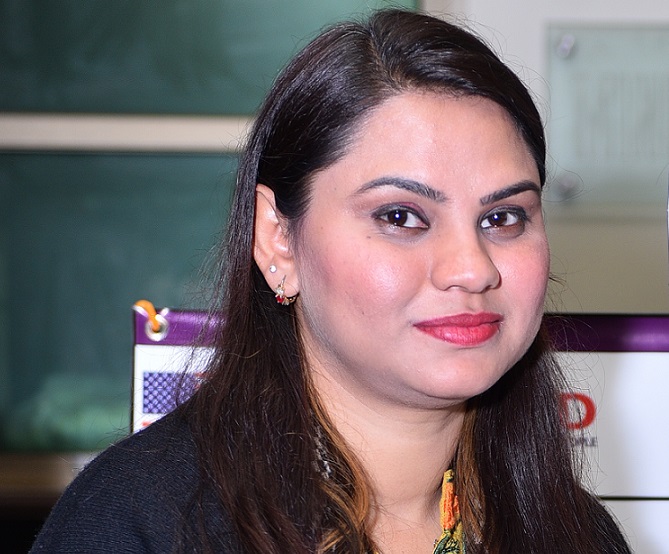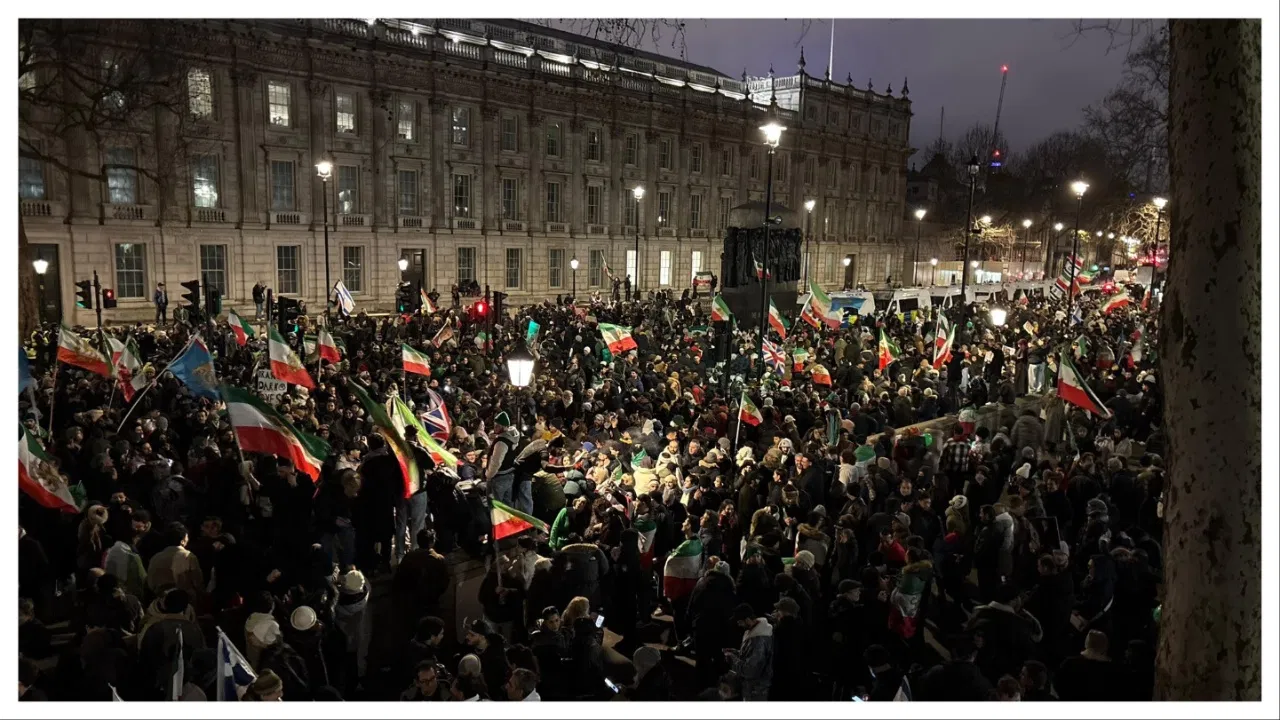Tehran / Global: Sardar Mushtaq Gill, founder of LEAD Ministries, has issued a strong condemnation of Iran’s recent violent crackdown on prot
Ever since the Parliamentary Committee on Electoral Reforms (PCER) has made public the Draft Elections Bill, 2017 to receive comments and input by public at large for 30 days, the voices are coming from different parts of the country about electoral reforms for effective participation of religious minorities and women in the mainstream political system of Pakistan.
The Government of Pakistan deserves appreciation for constituting the PCER on 25th July 2014 with the mandate to consider and present recommendations for electoral reforms to ensure that future elections are held in free, fair and transparent manner. The chairman and all the honorable members of the committee deserve applause for deliberations during meetings on electoral reforms over a period of two years. The PCER has examined nine election related enactments to club them into single electoral law, and presented two interim reports on electoral reforms as yet to the Senate and National Assembly of Pakistan. The committee deserves kudos for finalizing Draft Elections Bill, 2017 to amend, consolidate and unify laws relating to the conduct of elections.
The effective and sustainable political representation of religious minorities and women has been a matter of grave concern for electorate and civil society organizations since the introduction of mode of proportional representation electorate system in 2002 for incorporating parliamentarians on reserved seats, restricting right of minority and women voters to elect their own representatives.
The civil society has been making and submitting their recommendations in respect of electoral reforms for better political representation on reserved seats since the establishment of the PCER, but it is surprising that major issues pertaining to the effectiveness of representation of religious minorities and women in the mainstream political order, are left unaddressed in the Draft Elections Bill 2017, under which next polls 2018 will be held.
According to the mode for representation of women and religious minorities in the political system of Pakistan, the members to the seats reserved for religious minorities and women are nominated and selected in accordance with law through proportional representation system of political parties’ lists of candidates on the basis of total number of general seats won by each political party in the National Assembly or Provincial Assemblies, whereas the members to the general seats of the legislative assemblies are elected by direct voting in a constituency on first-past-the-post system through a secret ballot.
The majority of the electorate representing women and minority communities are of the view that their representatives in legislature do not get elected directly on reserved seats, so they do not bother about the issues of their communities. Most of the time, they get to know about their leaders after notification issued by the Election Commission of Pakistan, declaring them as elected representatives of minorities and women. Ironically, many of their representatives have neither had any political schooling nor party membership prior to being selected by their respective political parties. Women and minority parliamentarians elected through the list system are considered lesser than their directly elected counterparts, who have their constituencies as their real power base. The legislators elected on reserved seats are treated as mere fillers for statistics without real political power, and their election through indirect vote is just an attempt to project the positive image of Pakistan in the world. The electorate firmly believe that their representatives selected by the political parties have become insignificant, ineffective and apolitical, who can in no way become the real voice for their rights in the elected bodies, and true representatives of their communities, unless they get elected through direct vote.
The members of the religious minorities have had diverse opinion regarding mode of representation of minorities in the political system. A large number of people among minorities is in favour of existing joint electorate system with necessary electoral reforms, while some of them are demanding dual vote close to reverting to separate electorate system, evidently detrimental to the national fabric, and contradictory to the democratic principal of one person, one vote.
The system of proportional representation provides only symbolic representation to marginalized groups in legislature as a stop-gap arrangement, but it does not facilitate the real political empowerment and democratic participation of religious minorities and women. The existing mode debars the women and minority electoral candidates from participating in the practical politics through canvassing in order to have their own independent vote bank and public support, and it does not contribute to enhance their ability to stand and emerge as a genuine political leader to address issues of their communities. The existing system excludes the independent candidates, no matter how much true representatives they are, to contest elections on reserved seats, as selection is subject to proportional distribution amongst the mainstream political parties. Therefore it is counter-productive to the goal of temporary special measures.
The effectiveness of existing mode for elections on reserved seats under joint electorate system has been questioned over and again, as none of the election laws addresses the concerns of minorities and women, like truly representative and effective political participation, transparency and accountability before the electorate and the communities, they represent.
Therefore, the government needs to introduce a method for better political representation on reserved seats which addresses genuine concerns of communities, and must be equally effective for religious minorities and women as well, and acceptable to concerned stakeholders.
In this regard, the following formulae can be adopted for effective and sustainable representation of religious minorities in the mainstream political order.
Fresh delimitation be undertaken keeping in view the 342 constituencies for national assembly of Pakistan, and 728 constituencies for provincial assemblies, and all the existing seats including reserved seats for minorities in national assemblies (10) and provincial assemblies (23) be filled through direct vote. Not only seats, but also constituencies having significant minority voters be treated as reserved for minority electoral candidates to allow them contest direct election to gain votes from Muslim as well as Non-Muslim electors to secure seats in legislative assemblies. The constituencies other than reserved for minority electoral candidates must be considered to contest election for general seats, which is already being practiced. It should be made certain that constituencies for reserved seats for provincial assemblies do not overlap with the constituencies for reserved seats for national assembly, in order to ensure vote bank for minority candidates in more constituencies.
If the above-mentioned formulae is given legal cover, then it would make minorities’ representation more effective and accountable to the electorate and communities, they represent, and would cultivate democratic culture as well as improve social harmony in Pakistan.
The given formulae can be equally effective for women as well, which would contribute to their political empowerment and improved status in Pakistan.
Having direct election on reserved constituencies will not in any way affect the candidates contesting elections on general seats, however challenge the supremacy of few unelectable who have managed to get elected on reserved seats with the support of political parties rather than electorate. It is no secret that the Election Commission of Pakistan (ECP) gets over-burdened due to unethical practice of influential candidates contesting elections from multiple constituencies, and it has to hold bye-elections. Similarly it is known fact that the highest offices i.e. president, prime minister, army chief, governors, chief ministers etc. are reserved for the Muslims, so there is no harm in giving a slight advantage to women and minorities by reserving seats as well as constituencies to allow them contest direct election. This move would contribute to their political empowerment, and facilitate their entry in legislative assemblies with dignity and pride through vote power.
If the political parties do not agree to the above-mentioned formulae for election on reserved seats by giving excuse of extra burden of election process on Election Commission of Pakistan (ECP), even then the procedure of election on reserved seats must be changed to ensure that candidates on reserved seats could contest election as joint candidates along with candidates on general seats through direct vote.
As the exercise of electoral reforms for reserved seats is based on “now or never” approach since the mode of election on reserved seats was changed from separate electorate to joint electorate 15 years back in 2002, therefore nothing less than change in the mode of representation for women and religious minorities will be acceptable.
The electorate has a democratic right to choose their own representatives through direct election on reserved seats instead of being represented by appointees of the political parties. The Elections Bill, 2017 is an opportunity to gain confidence of the public in the political process through making credible changes in the electoral process, and introducing amendments to the constitution of Pakistan pertaining to election on reserved seats for women and minorities.
Since the government seems determined to empower marginalized groups, and introduce electoral reforms to enhance the effectiveness of electoral process in Pakistan, it must give consideration to reviewing the mode for political representation of women and minorities, so that they are elected on reserved seats through secret ballot in upcoming general elections 2018, and such representatives have an electorate to respond to. Without having real constituencies, the women and minorities legislature may not have the possibility to put their energies towards developing and strengthening a loyal mass base for themselves.
(The writer is a “Member” of the Punjab Commission on the Status of Women (PCSW), and working as “Project Manager” with the Association of Women for Awareness and Motivation (AWAM). She can be reached at shazia.feminist@gmail.com)
You May Also Like
Washington, D.C.14 January 2026: On behalf of global refugee communities, especially Christian refugees, Sardar Mushtaq Gill, founder of LEAD Minis
Pakistan: The Lahore High Court today ordered the recovery of Aneeqa, a 13-year-old Christian girl who was abducted on December 29, 2025, and hande

"Trial of Pakistani Christian Nation" By Nazir S Bhatti
On demand of our readers, I have decided to release E-Book version of "Trial of Pakistani Christian Nation" on website of PCP which can also be viewed on website of Pakistan Christian Congress www.pakistanchristiancongress.org . You can read chapter wise by clicking tab on left handside of PDF format of E-Book.









